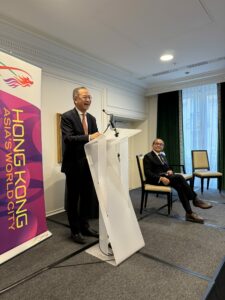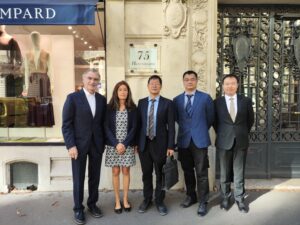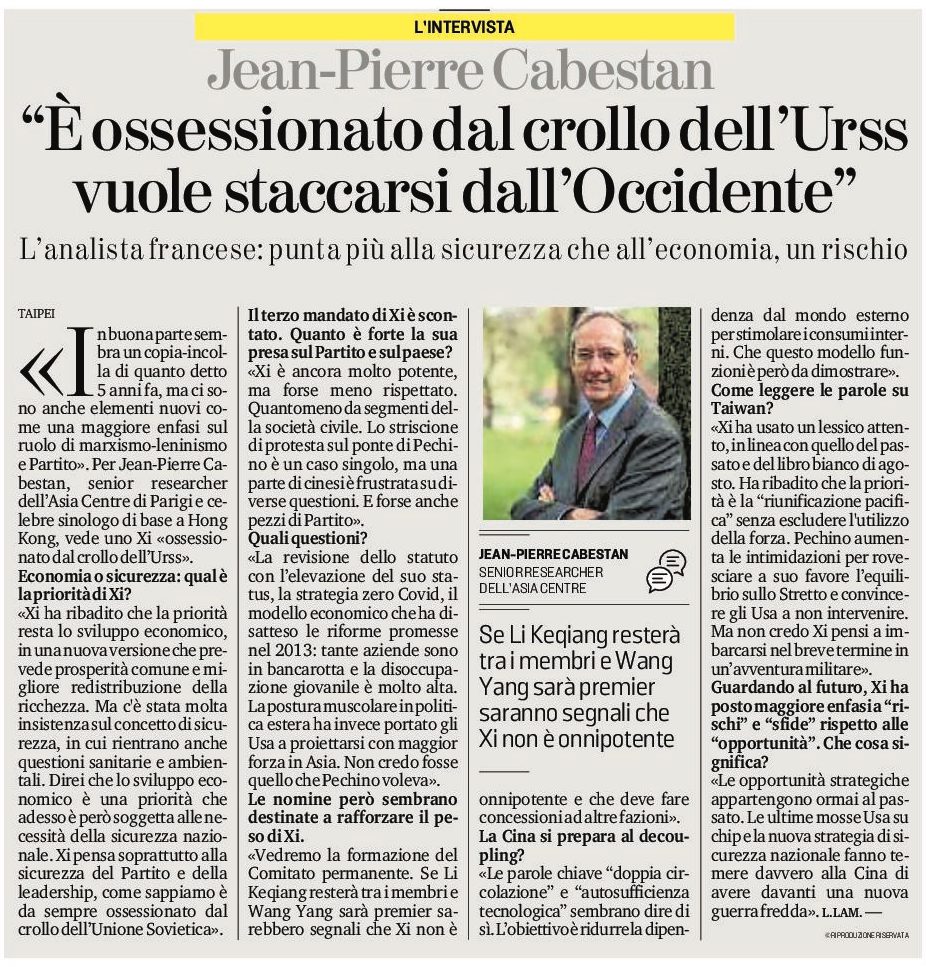Read her below La Stampa journalist Lorenzo Lamperti’s interview to Jean-Pierre Cabestan on Xi Jinping’s opening statement at the CPP’s 20th National Congress.
How different is Chinese Communist Party now from 100 years ago?
The major difference is that, until 1949, the CCP was one political force among others, for example the Kuomintang. But in 1949 it became a Party-State. It’s not what we call a party in the western world, it’s more than that. It took control of the State, someone says it kidnapped the State, but anyway it’s the backbone of the State. From an organizational point of view, the party and its membership has changed over the years. Today the members are more and more university graduates and 30 million of the members are cadres. It’s organized with Leninist principles, which means it is very much top down. On the surface it is democratic but in reality it’s not. People listen to the instructions from the top and they don’t have so much space to question them or to debate about them. The second principle, which is even more important, is opacity. No one knows how the party operates and how the decisions are made. It’s like a black box. 60 million on 90 million of CCP members don’t really have access to confidential information. They are there just to propagate the party’s discourse and mobilize the society when it’s needed. The Covid-19 was a good example of that. In terms of ideology, today’s party is a mixture. I would question that its Marxist-Leninist roots have been forgotten for good. The party still wants to be perceived as Marxist-Leninist but of course with Xi it promotes traditional Chinese values. But we have to be careful on that, in the official party’s documents there are no mentions about Confucius. Those documents refer to Marx, Engles, Lenin or even Stalin. Confucianism is more like an ingredient that the party uses in its propaganda and external promotion. So, basically today the party’s ideology is a melting pot, a patchwork made of different pieces of clothes, but basically it’s still Marxist-Leninist.
Chinese history is seen as an immense source of cultural unity by politicians like Xi. What sort of resource it offers to the CCP and how the party uses history in order to reinforce its position inside the Chinese society?
Since Tiananmen, the CCP has restored nationalism or what it calls patriotism. This is a key ideology for the CCP to legitimise its role. Nationalism is promoted to unite the society around the party leadership. Step by step, the CCP has relinked to the ancient Chinese civilization and history, promoting Chinese nationalism within China and China’s role on the international stage. Since 1989 the party began to promote 5 thousands years of China’s history in order to be relinked with traditional Chinese history and culture. This is something related to what happened at the end of the 19th century with the Opium War and the century of humiliation. CCP’s obsession is, and was, to restore a central power and it did. Today Chinese economy and China itself are much more powerful than before. Beijing is competing with Washington and maybe it could take its place. The party has strenghetend its legitimacy and it’s perceived the only force capable to “make China great again”.
In the last weeks, People’s Daily published 2 commentaries with the headline: Socialism has not let down China. Is that true? In the same commentaries, Jiang Zemin and Hu Jintao found no mention. What does it mean? Xi’s “third revolution” is completed?
The CCP has kept on rewriting history from day one. There was a big division before and after Mao’s Cultural Revolution and the beginning of Deng’s reforms era. Jiang and Hu always referred to that, but Xi wants to erase any turning point and to look at PRC’s history as one bloc in order to demonstrate that the party has always been right. Xi ignores the twists and turns, this is why Jiang is sidelined and even Deng sometimes is sidelined. Deng is not the hero anymore, he’s someone who launched reforms, opened the country but also took some risks in allowing people to think about the chance to get some political reforms, separating the party and the government. Xi returned to a more militant and paranoid China as in Mao’s times. In Xi’s China Mao was always right and PRC’s history is a simplified version of the CCP’s history that promotes, putting that in Xi’s words, a more loveable image of the party and of the country.
In the western world we often describe China as a dictatorship ruled by the CCP. But how Chinese political system is perceived inside China?
CCP likes to say that it does not identify with western values, highlighting the Chinese special characteristics. But the CCP still claims that China is democratic and a lot of Chinese people believe it is right. There is a deficit of democratization and democratic values in China and this has two causes: two millennia of imperial rules and the CCP itself, which killed any democratic values since it came to power. Values that were spreading around China in the early 20th century. Even before 1949, CCP promoted a new kind of democracy, with 8 parties that are still existing but they are very small and they have to abide by CCP’s leadership. They are not competing for power. Since 1949 anyone who was promoting democratic ideas was repressed. So today, the CCP says China is a democracy, but with Chinese characteristics.
Any political reforms is out of question?
Any gradual opening would trigger a process that the party fears it can’t control. There was an attempt in the late 80s to carefully go in that direction but it remained pretty vague. Today I am sure there are still Chinese, even inside the CCP, who are promoting that idea but that is not Xi’s idea and in hisy system there is no transition to anything else. But of course the party wants to show that it rules in people’s interest. So they organize surveys and when they get grievances they try to address them in one way or another. The ultimate option is to repress those grievances in order to save the country’s stability. But it remains a top down system organized like a military organization, but at the same time it tries to give the impression that it consults the people.
How accessible is the party?
It’s not easy to join the party. In France or Italy you go to a coffee table, you sign up some papers and you are a party member. In China it takes a much longer time. You have to face probation, you have to be recommended. You have to demonstrate you are doing your job by learning the basic tendencies of the party, keep the party secrets and behave as a good member. It’s not easy. But what is the motivation of joining? It’s a very pragmatic one, even cynical. People join the party because they think it will help their career. If you want to succeed in China you need to join the party. One of ten can join the party. The party itself has changed over the years. Mao wanted to recruit farmers and working class people but they didn’t have a real competence about how to manage and run the country. Since the reform era, CCP has tried to get more educated and competent people. Today, half of the party members have a university degree or an equivalent. It’s now a cadres party, an elite party in a way. But if you are not a party member you don’t really care about what is happening inside the party. Most people are depoliticized and only interested in improving their daily lives, as it happens basically all around the world.
But Jack Ma’s story seems to suggest that to join the party is not enough. What does it tell us about his experience about CCP’s posture on the private economy and big managers?
Chinese economy is a mixed economy. Since Deng, China has and needs private entrepreneurship. Before they didn’t have a big impact on politics, but today you have big groups such as Alibaba, Tencent, Meituan, Huawei and others, which means the party needs to deal with other power centers, financially speaking but not politically, at least not yet. Most of them are not dangerous for the party. As a private entrepreneur you have to work hand in hand with the party in order to succeed. But the bigger these companies are, they are in a better position to negotiate and bargaining with the party. Maybe Ma went too far and he got his fingers burned. He thought he could have a say in some public policies, financial policies, and the party needed to show him and the others that he had not. But the party needs these big companies and their services because so many people rely on them. So the party needs to deal with forces it does not fully control. Capitalists are now red capitalists: they walk the line and they don’t launch themselves in the political realm. But at the same time political ideas can spread among entrepreneurship elites. Today it’s not a danger for the party, but it’s a force to be reckoned with because it’s a force of proposition that can influence public decisions. Question is for tomorrow and if they will start having political ideas about how the country should be organized. And bourgeois are coming to China. I don’t think that the CCP can just ignore private entrepreneurs, in some way it will need to find a balance with them. In general, Barrington Moore said “no bourgeoisie no democracy”. When people have enough to eat and a good life they become more interested in politics and about what the government is doing with their taxes. Maybe in the future the party could present itself as more open and it promotes some kind of consultative democracy, of course still led by the party.
Western world thought not only to integrate China in its system, but even to reshape it. As we know, that didn’t happen. What kind of balance is possible to find between CCP’s political values and democracy values?
We have all the ingredients of a new cold war: geopolitical tension around Taiwan, South China Sea, technology, economy, even ideology. But I don’t think that a new cold war will impose some changes in China. If China will change it will change from itself, pushed by Chinese society and Chinese elites.
In the western media we tend to describe China as a one man system. But how much the CCP is a Xi’s product and how much Xi is a CCP’s product? Xi’s future only depends on him or it depends on a more complex party’s system?
You are right to question the idea that China is a one man system. It has never been and it will never be: the CCP is a huge organization and many decisions are made outside of Beijing. Yet it’s true that Xi centralised the party. Until 2017 there was a large consensus within the party elite that Xi was doing the right thing. Since 2017 I believe that Xi has started to be questioned, maybe quietly, by more people within the party. But if you look at common people, a large segment of Chinese society is happy about Xi. He is more contested within elites, but they are not strong enough to organize some kind of reactions. Xi controls everything.He is paranoid, he wants to be sure he can control everything. And how the party-State is organized allows him to do that. He has been able to purge all the changers or potential changers and he does not seem to be in a hurry to find a successor so there is a chance that Xi will shape China and CCP for some time yet.




